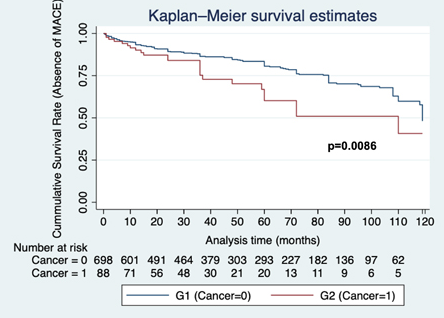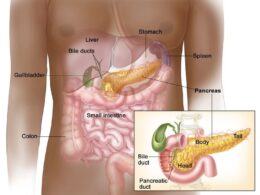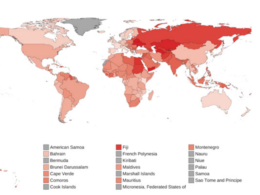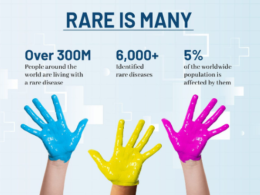Central Message:
Cancer has emerged as a significant independent predictor of major cardiovascular events, necessitating a paradigm shift in both primary and secondary cardiovascular prevention strategies.
Executive Summary:
The study presented at the 2023 American Heart Association Congress highlights cancer as a novel cardiovascular risk factor. Lead author Renzo Melchiori underscores the importance of recognizing the heightened cardiovascular risk in cancer patients post-treatment, akin to patients with chronic conditions like diabetes or renal failure. The retrospective analysis of 937 patients undergoing coronary angioplasty revealed a notably higher incidence of major cardiovascular events among those with a history of cancer. Importantly, this elevated risk persisted even after adjusting for traditional cardiovascular risk factors. Experts emphasize the imperative to intensify preventive measures, urging aggressive management of risk factors and participation in cardiovascular rehabilitation programs for cancer survivors. However, the study’s limitations, including the inability to differentiate effects by cancer type or treatment specifics, underscore the need for further research in this evolving field.
Examples and Statistics:
- A retrospective analysis of 937 patients undergoing coronary angioplasty revealed a 28.4% cumulative incidence rate of major cardiovascular events in those with a history of cancer, compared to 22.2% in those without.
- Kaplan-Meier analysis demonstrated a significantly higher probability of major cardiovascular events in patients with cancer or a history thereof.
- Multivariate Cox regression analysis identified cancer history as an independent predictor of major cardiovascular events, even after adjusting for traditional risk factors (HR: 1.66, P = .025).
Conclusions and Recommendations:
The study underscores the critical need to recognize cancer as a potent cardiovascular risk factor in both primary and secondary prevention settings.
To address this, healthcare practitioners should adopt more rigorous cardiovascular preventive measures for cancer survivors, focusing on aggressive management of risk factors and participation in rehabilitation programs.
Further research is warranted to delineate the impact of cancer type and treatment specifics on cardiovascular outcomes, allowing for more tailored preventive strategies in this population.
Ultimately, by integrating comprehensive cardiovascular care into cancer management, healthcare providers can strive to enhance both the quality and quantity of life for cancer survivors, reducing the burden of potentially preventable cardiovascular events.
Names mentioned
- Renzo Melchiori, MD: Lead author and a cardiologist at the University Hospital Austral in Pilar, Argentina.
- Andrés Daniele, MD: Cardiologist and president of the Argentine Cardio-Oncology Association, as well as the head of the Cardio-Oncology Department at the Roffo Institute of Oncology at the University of Buenos Aires, Argentina.
- Teresa López Fernández, MD: Cardiologist, coordinator of the Cardio-Oncology Program at La Paz University Hospital in Madrid, member of the Cardio-Oncology Working Group of the Spanish Society of Cardiology, member of the board of the International Cardio-Oncology Society, and co-chair of the first clinical practice guidelines in cardio-oncology of the European Society of Cardiology.


https://www.ahajournals.org/doi/10.1161/circ.148.suppl_1.16592
Renzo Melchiori, Sara Diaz Saravia, Lucas Szlaien, Pablo Rubio, Sergio Baratta, Alejandro Hita, Romina Mouriño, Manglio M Rizzo











